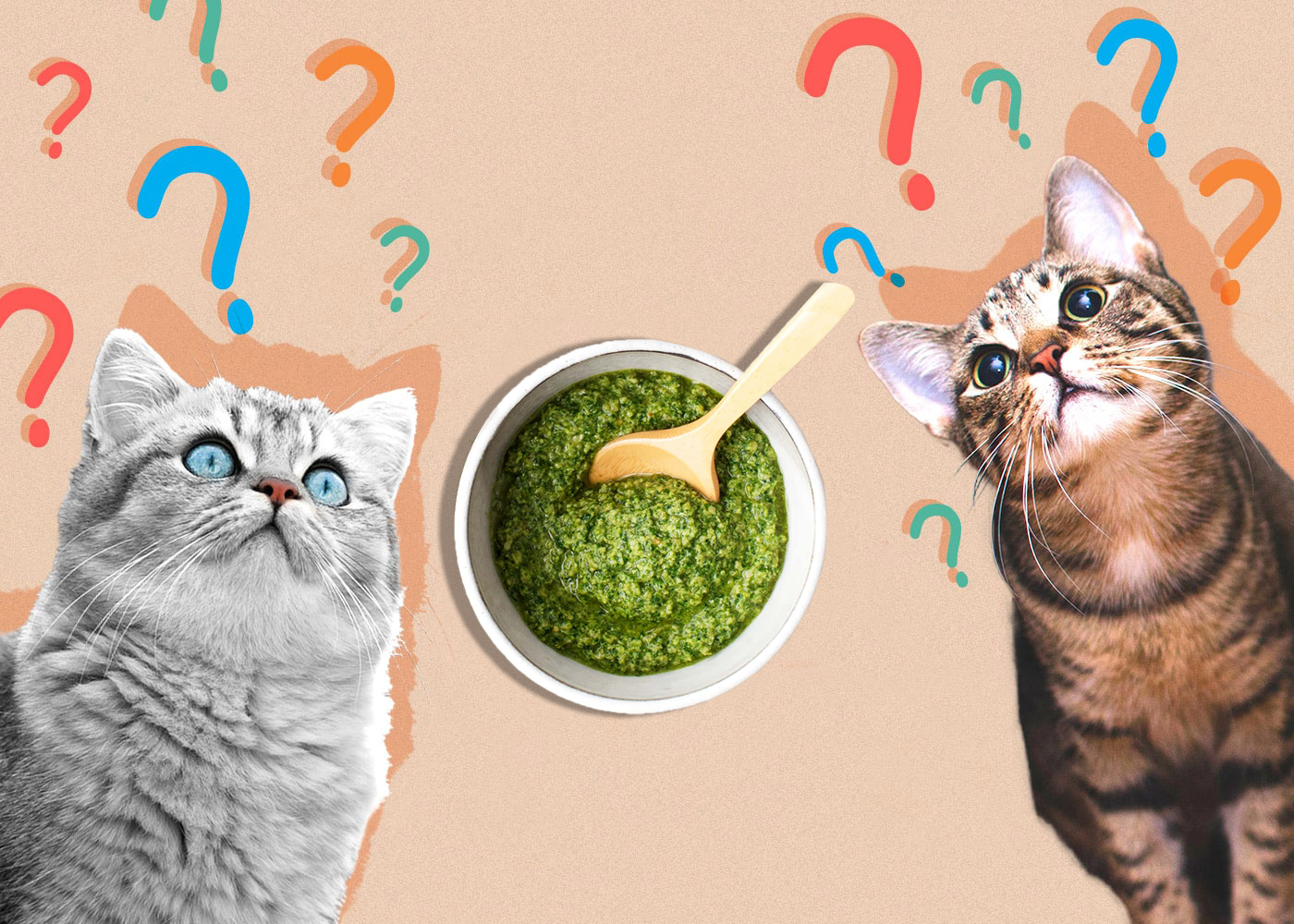Introduction
Pesto, a fragrant blend of fresh herbs, garlic, nuts, and cheese, has become a popular culinary delight for many. Its vibrant flavors and adaptability make it a popular ingredient in a variety of dishes. As a responsible cat owner, you may be wondering if this delectable creation is safe for your feline companion. Can cats consume pesto? In this article, we will look at the ingredients of pesto, investigate its potential effects on cats, and discuss whether it can be included in your cat's diet.
Can Cats Consume Pesto?
Pesto and foods containing its ingredients are not recommended for cats, according to scientific evidence. While individual pesto ingredients may not be overtly toxic to cats, the combination and concentration of these ingredients may cause digestive issues and discomfort in cats.
Pesto Containing Toxic Ingredients
Pesto is commonly made with ingredients such as garlic and certain types of nuts, both of which can be harmful to cats. Garlic, an Allium family member, can be toxic to cats and dogs. It contains compounds that can harm red blood cells, resulting in hemolytic anemia. Furthermore, certain nuts, such as macadamia nuts, are toxic to dogs and should be avoided in feline diets.
Is Pesto Toxic to Cats?
While the ingredients in pesto may be safe for humans, they are not always safe for cats. Garlic, in particular, is a source of concern because it has the potential to cause serious health problems in cats. Pesto is a less-than-ideal choice for including in your cat's diet due to its concentrated nature and the presence of garlic.
Pesto's Advantages for Cats
Cats do not benefit from pesto in any way. Cats have specific dietary needs that revolve around animal-based proteins. Pesto's ingredients, such as herbs and nuts, do not meet these requirements and are unlikely to benefit a cat's health.
How Much Pesto Can Cats Consume?
Given the potential risks associated with pesto's ingredients, it is best to avoid giving it to your cat at all. Garlic, even in small amounts, can be harmful to cats' health, and nuts are not a necessary or appropriate component of a feline diet.
Supplements and Alternatives
Instead of thinking about pesto for your cat, think about providing them with nutritionally balanced cat food that meets their specific dietary needs. High-quality commercial cat food is designed to provide the essential nutrients cats require for overall health.
Conclusion
Prioritize your feline companion's health and well-being when deciding whether cats can eat pesto. While some pesto ingredients are safe for humans, they are not safe for cats, particularly garlic and certain nuts. Instead of exposing your cat to potentially harmful foods, feed them a balanced diet that has been specially formulated to meet their nutritional needs. Consult your veterinarian for recommendations on the best nutrition for your cat's health and happiness.

